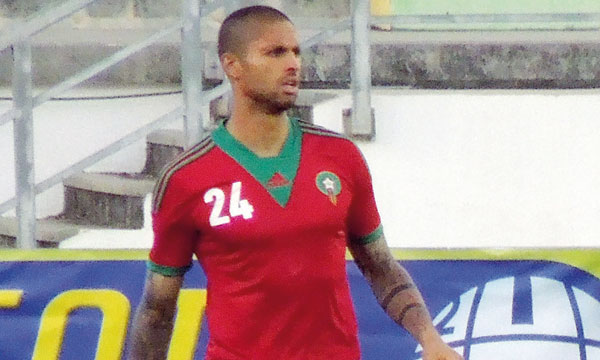Moctar Cissé’s Future in Doubt Amid WAC Loan Controversy
The career of Malian striker **Moctar Cissé** has been thrown into turmoil after a series of confusing and controversial moves involving his parent club, **Wydad Athletic Club Casablanca (WAC)**. The forward, who joined WAC in July 2015, now finds himself caught between conflicting loan agreements, disputes over his destination, and frustration at what his camp describes as manipulation by the Moroccan giants.
Cissé began the 2015–2016 season on a relatively positive note, scoring **four goals** for WAC before the winter break. His performances showed promise, but he lacked consistent playing time in a squad loaded with attacking options. In a bid to get him more minutes on the pitch, WAC sanctioned a six-month loan to **RS Berkane**, a fellow Botola Pro side struggling to find form. The move appeared logical: Berkane needed a striker with Cissé’s qualities, and the Malian international wanted regular football to continue developing.
However, upon returning from the mid-season break, Cissé was stunned to discover that WAC had arranged another loan spell—this time to **Salé**, a club in Morocco’s second division. Reports suggest the agreement had already been signed, effectively tying him to a team and division he had not approved. Cissé, who sees himself as a top-flight player, rejected the move outright, describing it as a step backward in his career. He also argued that he had never given his consent to play in the second tier.
The controversy deepened when another Botola Pro club, **Hoceima**, emerged as an interested suitor. According to sources close to the player, Cissé had hoped to secure a switch there instead, a move that would allow him to remain in Morocco’s top division and continue competing at the highest level. But WAC reportedly ignored his preference and insisted on enforcing the Salé loan arrangement.
Cissé’s entourage has gone as far as to accuse WAC of exploiting the player’s “kindness and intellectual level,” suggesting he was pressured into agreements without fully understanding their implications. This accusation points to possible ethical breaches in the handling of the deal, raising questions about how contracts and loan arrangements are communicated to players in Moroccan football.
The Malian forward has not ruled out taking legal action. His representatives are said to be preparing an appeal to FIFA’s **Players’ Status Committee**, the body responsible for adjudicating transfer disputes and ensuring player rights are respected. If the case reaches FIFA, it could set an important precedent for similar disputes involving African players in North African leagues.
For now, Cissé remains in limbo—uncertain whether he will wear the colors of WAC, Salé, or Hoceima for the remainder of the season. The lack of clarity threatens to derail his momentum at a crucial stage in his career. At 21 years old, Cissé is still considered one of Mali’s promising forwards, but a prolonged spell on the sidelines or in a league below his level could stunt his progress.
The coming weeks will be decisive. If WAC and Cissé’s camp cannot find common ground, external intervention may be the only way to resolve the conflict. One thing is clear: Cissé’s situation is emblematic of the challenges many African players face when navigating contracts abroad, where communication gaps and power imbalances too often leave footballers vulnerable.









